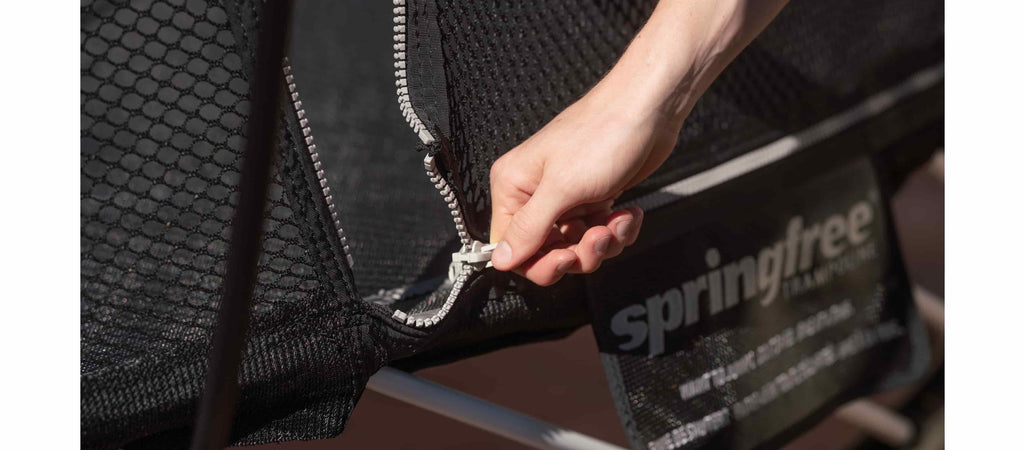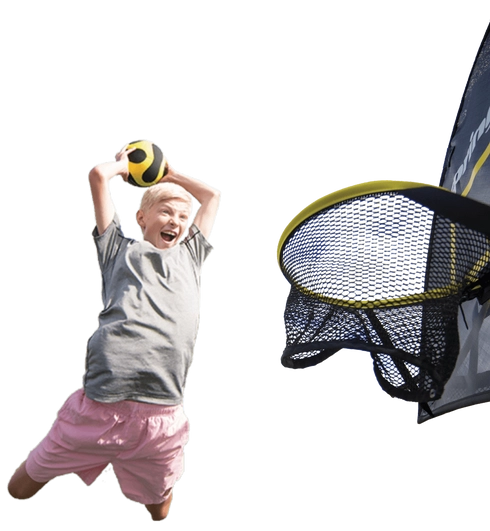Trampoline Safety Guidelines for Children on the Autism Spectrum
Discover essential trampoline safety tips for children on the Autism Spectrum. Springfree shares expert advice to keep your kids safe and happy!
min read

Trampolines can provide numerous benefits and hours of fun for children on the Autism Spectrum.
However, there are essential safety rules that need to be followed to ensure your child’s safety.
At Springfree, we are the leaders in trampoline safety.
Our Springless Trampolines eliminate 90% of product-related injuries – the only trampoline type to accomplish that feat.
We will share that expertise with you today, so your kids stay jumping happily and safely!
This blog is endorsed by Autism Canada, our partner in raising awareness about autism. With over 45 years of experience, Autism Canada is dedicated to improving the quality of life for individuals on the Autism Spectrum through education, advocacy, and support.
Are Trampolines Safe for Children on the Autism Spectrum?
Yes, trampolines are safe for children (and adults) on the Autism Spectrum and come with many benefits, such as:
- Improved heart health/cardio
- Stronger muscles and bones
- Low-impact exercise, meaning it’s easy on your joints.
- Excellent for developing balance and coordination.
- Can help weight management goals.
- Great for your core strength.
- Develops sensory skills, like the vestibular and proprioceptive systems.
- Relieves stress and enhances mood.
Before you can reap the benefits of trampoline jumping, you must first:
1. Get a safe trampoline
2. Follow basic safe jumping rules
We will cover how to choose a safe trampoline, and specific jumper rules, in the following sections.

Springfree Trampoline.
How to Find a Safe Trampoline for ASD
The first thing you need to accomplish before setting any rules is buying a safe trampoline.
What does a safe trampoline look like, though?
Well, it will depend on which type of trampoline you’re looking at.
With mini-trampolines (also called indoor trampolines or rebounders), you want to see these safety features:
- Padding over the edges and springs.
- Durable, high-quality steel trampoline frame.
- Handlebars for extra support – see below:

Photo courtesy of Fun & Function.
- A trampoline that is positioned low to the ground.
- Smooth bouncing system.
- High weight capacity.
For backyard trampolines, you want to prioritize the following features:
- A strong, UV-treated enclosure net.
- Shock-absorbent trampoline mat with soft edges.
- A galvanized/powder-coated steel frame that is padded or underneath the jumping surface.
- Springless design or a trampoline with springs outside of the net.
- Enclosure rods or padded, curved poles.
- High weight capacity that appropriately fits your child.
See the graphic below for Springfree Trampoline’s safety features to give you an idea of what a safe outdoor trampoline looks like:

Springfree Trampoline.
11 Essential Trampoline Safety Rules to Follow
The following safety rules for trampolines were made for backyard trampolines, but some will apply to indoor, or mini-trampolines, as well.
1. Only one jumper at a time – most trampoline injuries occur when multiple kids are jumping simultaneously.
2. If you allow more than one jumper at a time, no roughhousing or wrestling on the trampoline.
3. Supervise your child while jumping.
4. No flips or stunts unless professionally trained.
5. Always follow the single jumper trampoline weight limit. This will be stated by the manufacturer.
6. Stay toward the centre of the mat – it’s the safest part of a trampoline.
7. Never go underneath the trampoline.
8. Conduct monthly maintenance checks and replace/repair any parts that need it.
9. Look into trampoline accessories like a ladder for easier exit/entry and a weather cover to protect the trampoline from the elements.

Springfree Trampoline.
10. Make sure the door to the trampoline is ALWAYS zipped shut before jumping.
11. No pets on the trampoline.
It’s very important to inform and set expectations with your child that these rules are to always be followed.
Trampoline therapy for autism is safe but you must use them properly to decrease your chances of an injury.
The Best Trampolines for ASD This Year
Buying a safe trampoline and following basic jumping rules are the most important things you can do to ensure your child’s safety.
If you check off those two items, you are well on your way to jumping safely for years to come!
We at Springfree recently made an unbiased list of the best trampolines to buy this year for children on the Autism Spectrum.
This List was thoroughly researched to include only the best (and safest) models specifically for ASD. You will find indoor and outdoor trampolines listed from least to most expensive.
If you’re looking into trampoline therapy to help develop your child’s skills, the article below will be a great starting point for you.
Check it out: 5 Best Trampolines for Children on the Autism Spectrum
